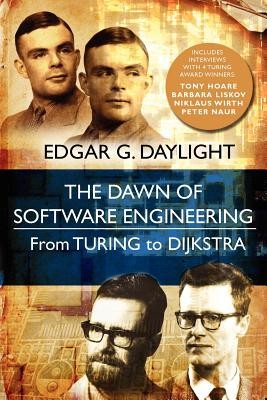
- Išsiųsime per 10–14 d.d.
- Autorius: Edgar G Daylight
- Leidėjas: Lonely Scholar
- ISBN-10: 9491386026
- ISBN-13: 9789491386022
- Formatas: 15.2 x 22.9 x 1.4 cm, minkšti viršeliai
- Kalba: Anglų
- Extra -15 % nuolaida šiai knygai su kodu: ENG15
Atsiliepimai
Aprašymas
Contrary to what many believe, Alan Turing is not the father of the all-purpose computer. Engineers were, independently of Turing, already building such machines during World War II. Turing's influence was felt more in programming after his death than in computer building during his lifetime. The first person to receive a Turing award was a programmer, not a computer builder. Logicians and programmers recast Turing's notions of machine and universality. Gradually, these recast notions helped programmers to see the bigger picture of what they were accomplishing. Later, problems unsolvable with a computer influenced experienced programmers, including Edsger W. Dijkstra. Dijkstra's pioneering work shows that both unsolvability and aesthetics have practical relevance in software engineering. But to what extent did Dijkstra and others depend on Turing's accomplishments? This book presents a revealing synthesis for the modern software engineer and, by doing so, deromanticizes Turing's role in the history of computing.EXTRA 15 % nuolaida su kodu: ENG15
Akcija baigiasi už 1d.14:29:27
Nuolaidos kodas galioja perkant nuo 10 €. Nuolaidos nesumuojamos.

- Autorius: Edgar G Daylight
- Leidėjas: Lonely Scholar
- ISBN-10: 9491386026
- ISBN-13: 9789491386022
- Formatas: 15.2 x 22.9 x 1.4 cm, minkšti viršeliai
- Kalba: Anglų




Atsiliepimai